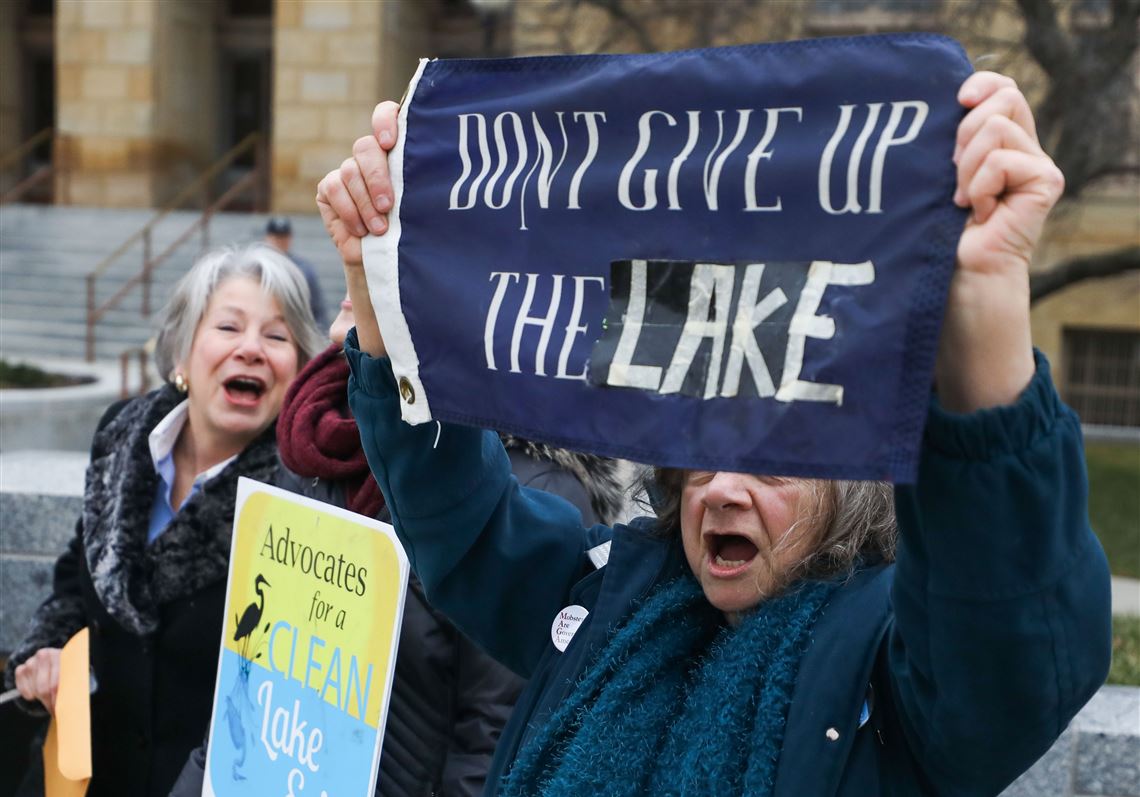This article by Tom Henry appeared in the Toledo Blade on January 28th, 2019.
A downtown Toledo courtroom was filled to capacity Tuesday when U.S. District Judge Jack Zouhary heard arguments for two hours over whether Toledo’s Lake Erie Bill of Rights is constitutional or not.
A ruling is expected at a later date.
The plaintiffs, a Wood County agricultural corporation called Drewes Farms Partnership, of Custar, Ohio, argues the successful citizen-led ballot initiative which Toledo voters approved at a special election last February by a 61-39 percent margin is so vague and far-reaching that it has the potential to drive some northwest Ohio farmers out of business.
Their lawsuit, filed the day after that election, has been supported by the Ohio Farm Bureau Federation. Judge Zouhary allowed the state of Ohio months ago to serve as a co-plaintiff.
It targets the city of Toledo because the measure became part of the city’s charter once voters passed it.
“The Ohio Constitution limits their power to the city of Toledo,” Thomas H. Fusonie, one of several attorneys from the Columbus-based law firm, Vorys, Sater, Seymour & Pease, said in his opening statement on behalf Drewes Farms.
Sarah K. Skow, a Toledo attorney representing the city, said proven harm within the city — such as that caused by the algae-induced Toledo water crisis of August, 2014 — allows it to go outside of the city limits to hold polluters responsible.
She told the judge the Lake Erie Bill of Rights is a “social values statement passed by 61 percent of the voters at a special election … reaffirming their rights under the Ohio Constitution for clean drinking water.”
Also known as LEBOR, the Lake Erie Bill of Rights is part of an international “rights of nature” movement that has gained worldwide attention.
(To read the rest of this article at its original source please click HERE.)

